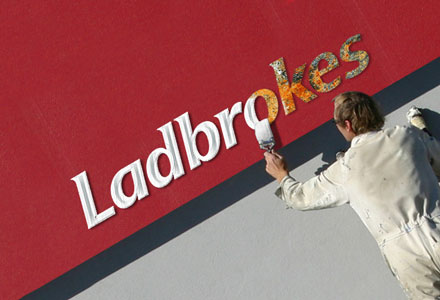 Many iGaming companies are no strangers to a bit of drama and some inconsistency. But when land-based UK bookmakers began making the move online, it made sense that their reliance on their retail activities would allow them to be more stable than their pureplay competitors.
Many iGaming companies are no strangers to a bit of drama and some inconsistency. But when land-based UK bookmakers began making the move online, it made sense that their reliance on their retail activities would allow them to be more stable than their pureplay competitors.
As one of the two biggest bookmakers going, Ladbrokes first opened up their website in 2000 and soon found considerable success, particularly with their online poker product. But as the years went by, having a strong brand and simply being there was no longer enough and Ladbrokes’ online activities went into serious decline.
That’s why the appointment of Richard Glynn in April 2010 as successor to CEO Chris Bell was touted as being a crucial move for the company. Glynn’s brief was clearly to set about masterminding a plan for online domination. This plan came in the form of Project Galvanise – which could quite easily also be the name of a James Bond movie.
It all sounded extremely promising, Project Galvanise identified a number of areas in which Ladbrokes were under performing and could be comfortably remedied. The general theme behind the changes was to ensure Ladbrokes provided a customer centric experience – a phrase easily said but not so comfortably quantified.
The immediate changes consisted of a senior management shake up with various comings and goings in addition to new supplier deals on the retail side of things. Of more significance to Ladbrokes remaining loyal users was the merging of divisions to allow the company to target one customer across all products.
Cross selling is an obvious advantage Ladbrokes and other bookmakers have over many of their pure play competitors and encouraging retail customers to remain loyal online can have a large impact for the bigger brands.
Slow Start
But things didn’t quite go to plan for Glynn’s galvanised company. The immediate future following the changes saw poor share price performance and a stretching of the gap between them and their nearest rivals Hills. The difference between the two in terms of net revenue was a much as 26% in the first quarter of 2011 meaning that the early stages of Project Galvanise showed little promise.
With regards to their online business the company struggled to make the acquisitions strategy that were intended to drag them up the iGaming food chain. Talks with Sportingbet and 888 about takeovers both fell through and in the end were to protracted that the collapse of the 888 bid was actually seen as a positive.
But following Ladbrokes’ failed Sportingbet takeover in October last year shareholders became concerned that the company not only appeared adverse to taking risks but that they also couldn’t close either deal.
Panmure Gordon analyst Simon French told Reuters at the time: “It begs questions about whether other companies will be willing to enter acquisition talks with them in the future.”
After having made such a noise about reinvigorating the company it was no surprise when Glynn came in for personal criticism. Although, rather than this being focused on his record, the subject of most gripes was with his salary.
Despite profits falling 6.1% year on year in 2011 Glynn received a £327,000 cash bonus plus more in deferred shares. This caused further discontent within the company given that many retail staff were made to go without bonuses – some who had worked at the company for as long as 40 years.
Galvanising
When it appeared as if Glynn’s fortunes couldn’t get much better his persistence began to pay off.
A new deal with Microgaming has improved the casino and games offering by allowing them to provide of more diverse selection of gaming opportunities. There has also been visibly more advertising and this continues to have a positive effect on the amount of sign ups taking place.
Rather than looking for the big acquisitions Glynn, to his credit, has turned to plan B. This has consisted of investing £50 million which so far has gone on smaller and more sensible deals.
The most recent of which is the hiring of Sky IQ. This deal is designed to help Ladbrokes understand their online customers better, something they haven’t managed too successfully so far. This will enable them to improve their the targeting of their email communications and, more importantly going forward, their mobile communications.
In doing so, Ladbrokes have also been able to continue of their one customer approach as director of customer acquisition and customer development Wendy Collins explained in Marketing Week.
She said: “If a customer plays a game online it is about recognising that and offering them a similar or enhanced experience in the mobile space.”
Another move which is likely to have a significant effect is to the launch of a new online sportsbook which was created in response to digital revenue and profits falling considerably.
New features include one click betting, personalisation options and more cross-selling opportunities. These changes in addition to the new deal with OpenBet have given Ladbrokes much reason to be hopeful in recent times.
This is illustrated by positive share prices. While the last few months have been good to the iGaming industry as a whole, Ladbrokes outshone its nearest rivals in May with an increase of 9.27% and will be hoping to continue to do so.